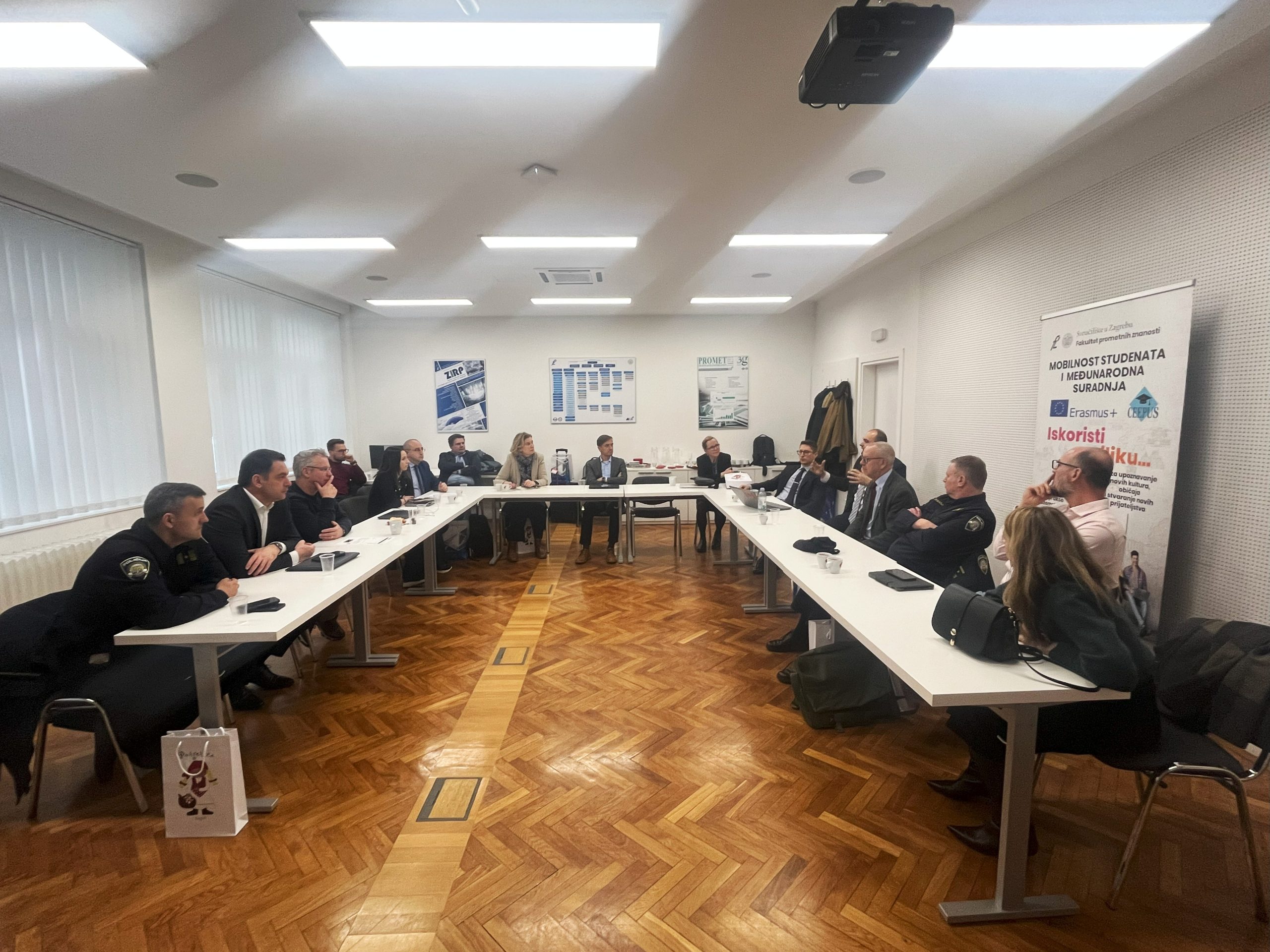Croatia workshop – 27-28 January 2025
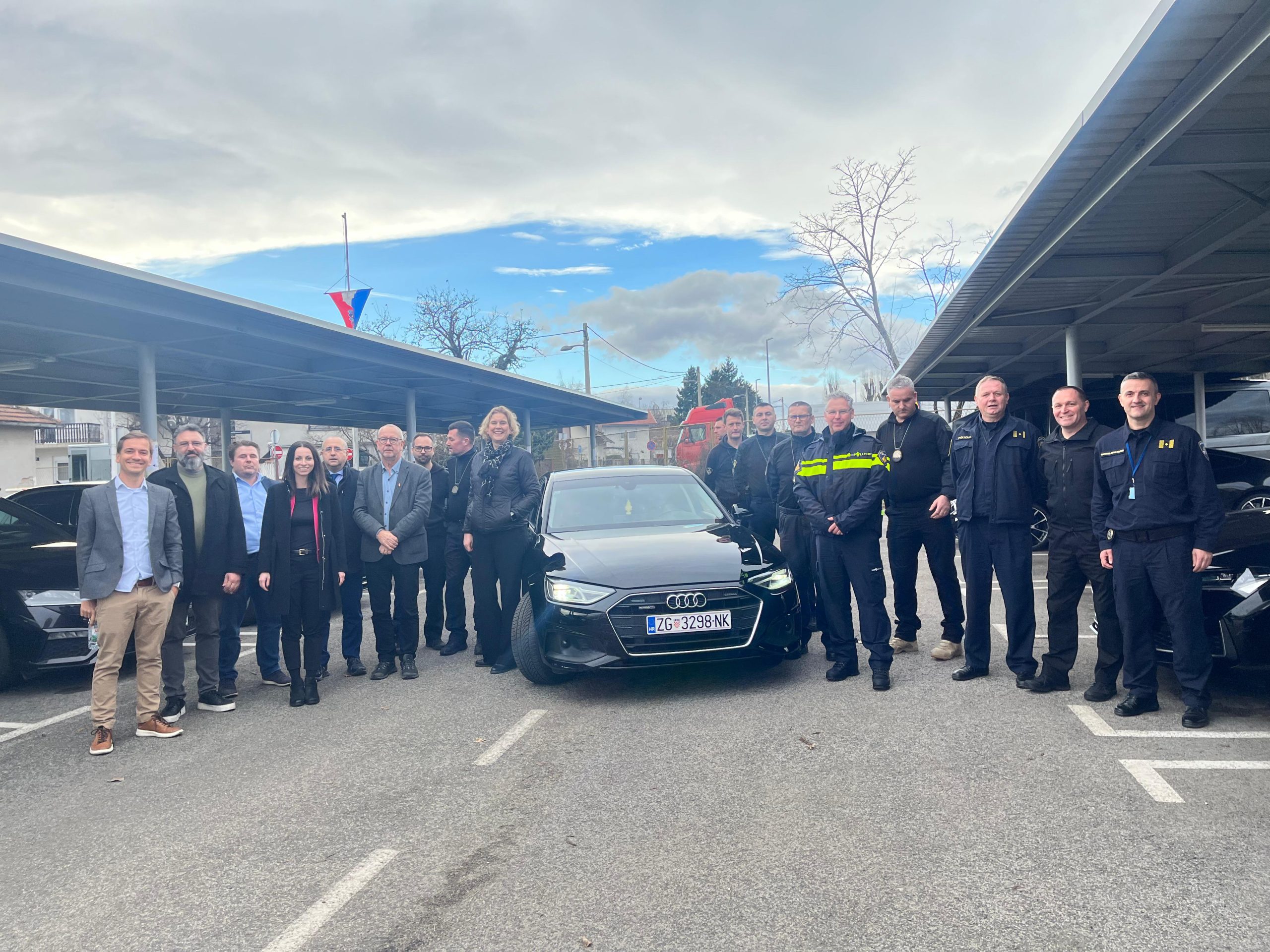
The third workshop of the EU Road Safety Exchange (EURSE) project’s second phase took place in Zagreb, Croatia, on 27 and 28 January 2025. The workshop was co-organised with the General Police Directorate of the Ministry of the Interior and the Faculty of Transport and Traffic Sciences from the University of Zagreb, and supported by the City of Zagreb. The partners from Sweden and the Netherlands joined the EURSE workshop that follows two study visits organised during 2024 .
The first day was held at the General Police Directorate Headquarters in Zagreb. Assistant Head of the Public Order and Security Directorate, Tomislav Gulan, welcomed the participants, who included representatives of the European Commission, ETSC, Sweden, The Netherlands, Croatian Roads, the City of Zagreb, and the Faculty of Transport and Traffic Sciences.
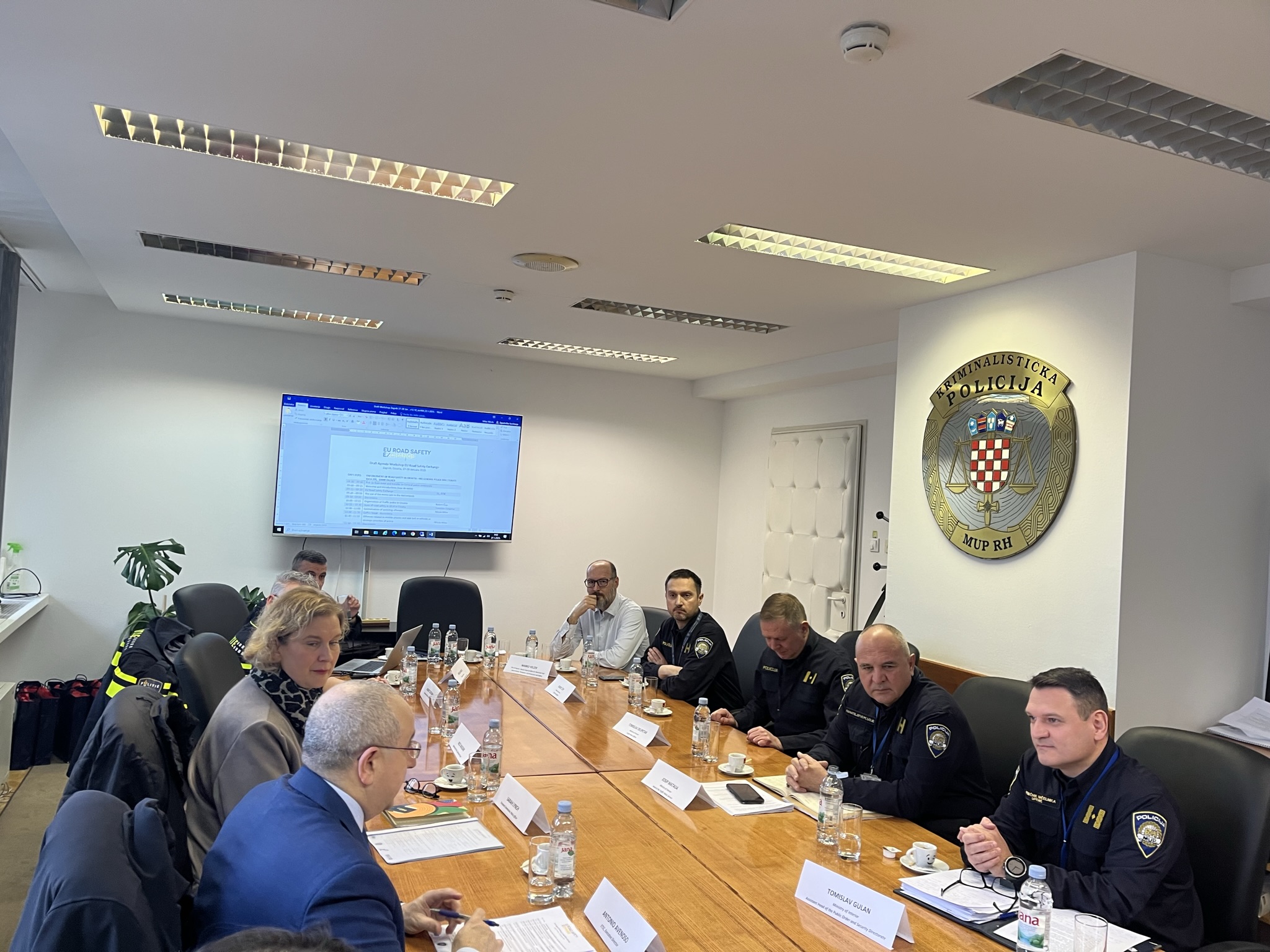
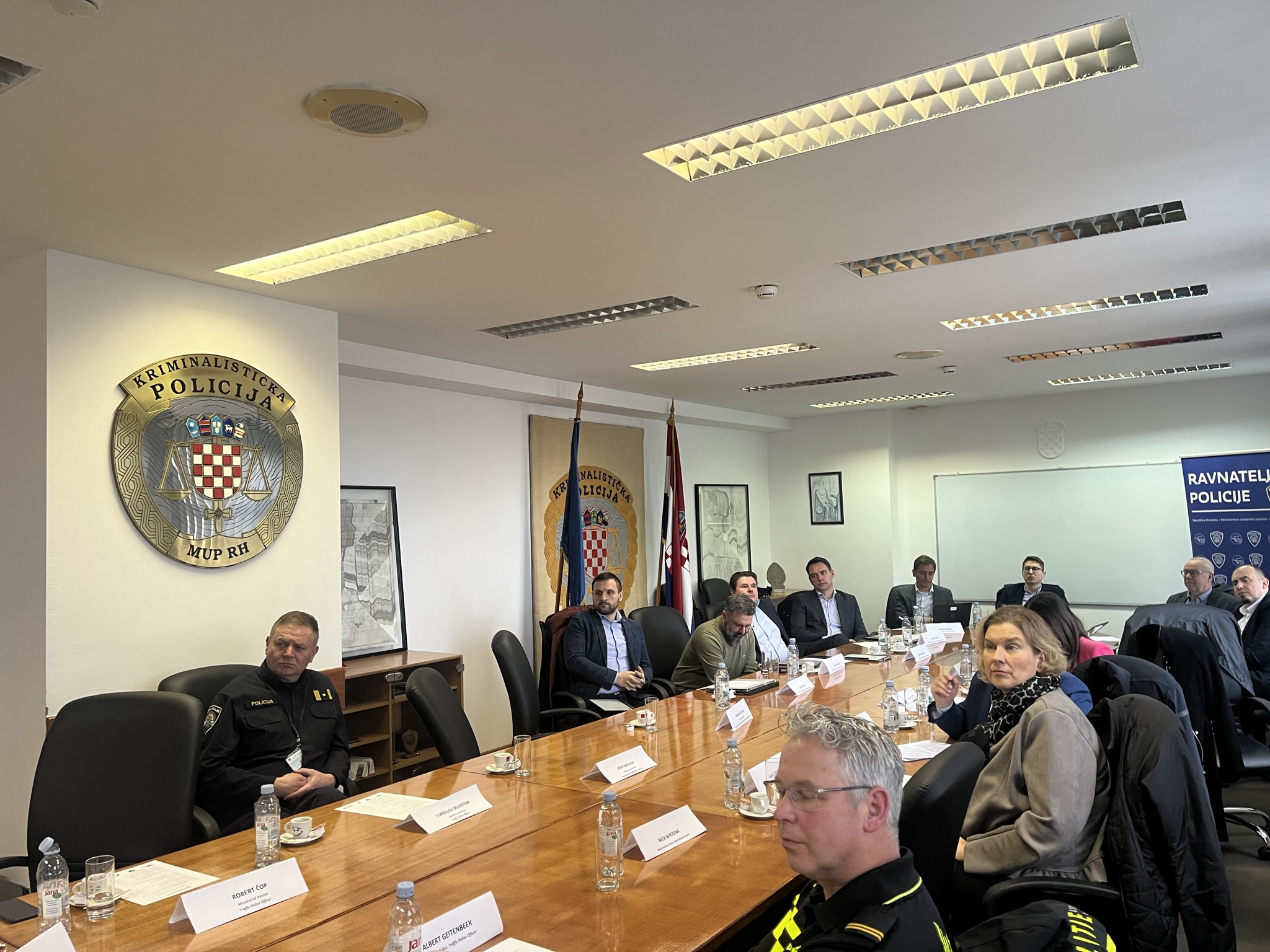
Croatian representatives from the Ministry of the Interior gave an overview of the traffic police structure and the road safety situation. In 2024, Croatia recorded its safest year on the roads so far, with the lowest number of road deaths.
Key contributing factors included increased enforcement, public awareness campaigns via media and national television, and initiatives to improve emergency corridors, which have significantly helped rescue efforts and times.
The Assistant Head of the Traffic Police Service, Nikola Milas, presented their work on the centralisation of speeding offenses in Croatia. The country is establishing a single center for processing all traffic offenses, aiming to improve efficiency and reduce the administrative burden on police officers.
He also shared with the workshop participants the strategic priorities of the police directorate, namely reducing the use of mobile phone use behind the wheel and seat belt non-compliance. About half of all the car passengers killed on Croatian roads were not wearing a seatbelt, a figure that requires stronger efforts.
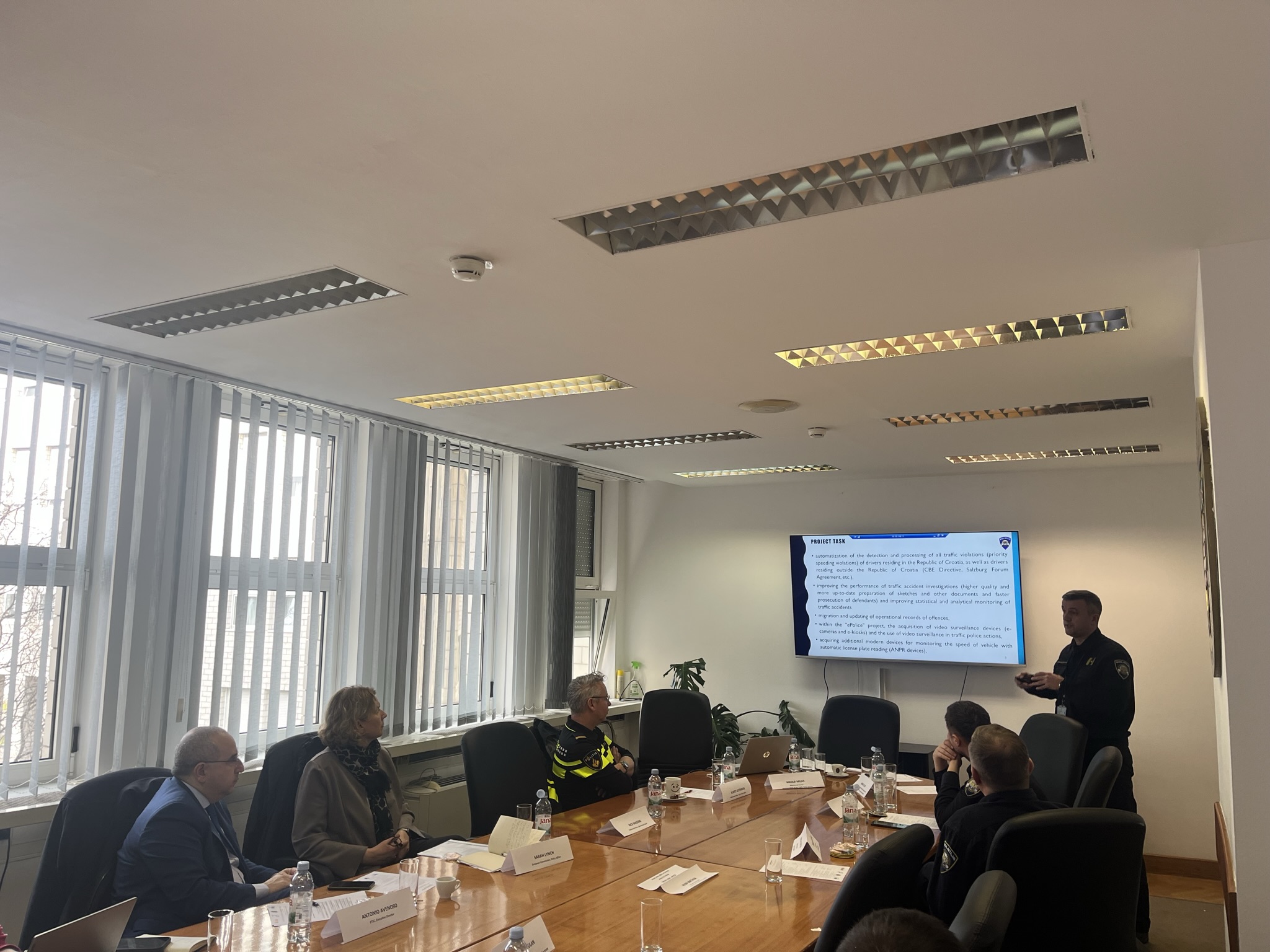
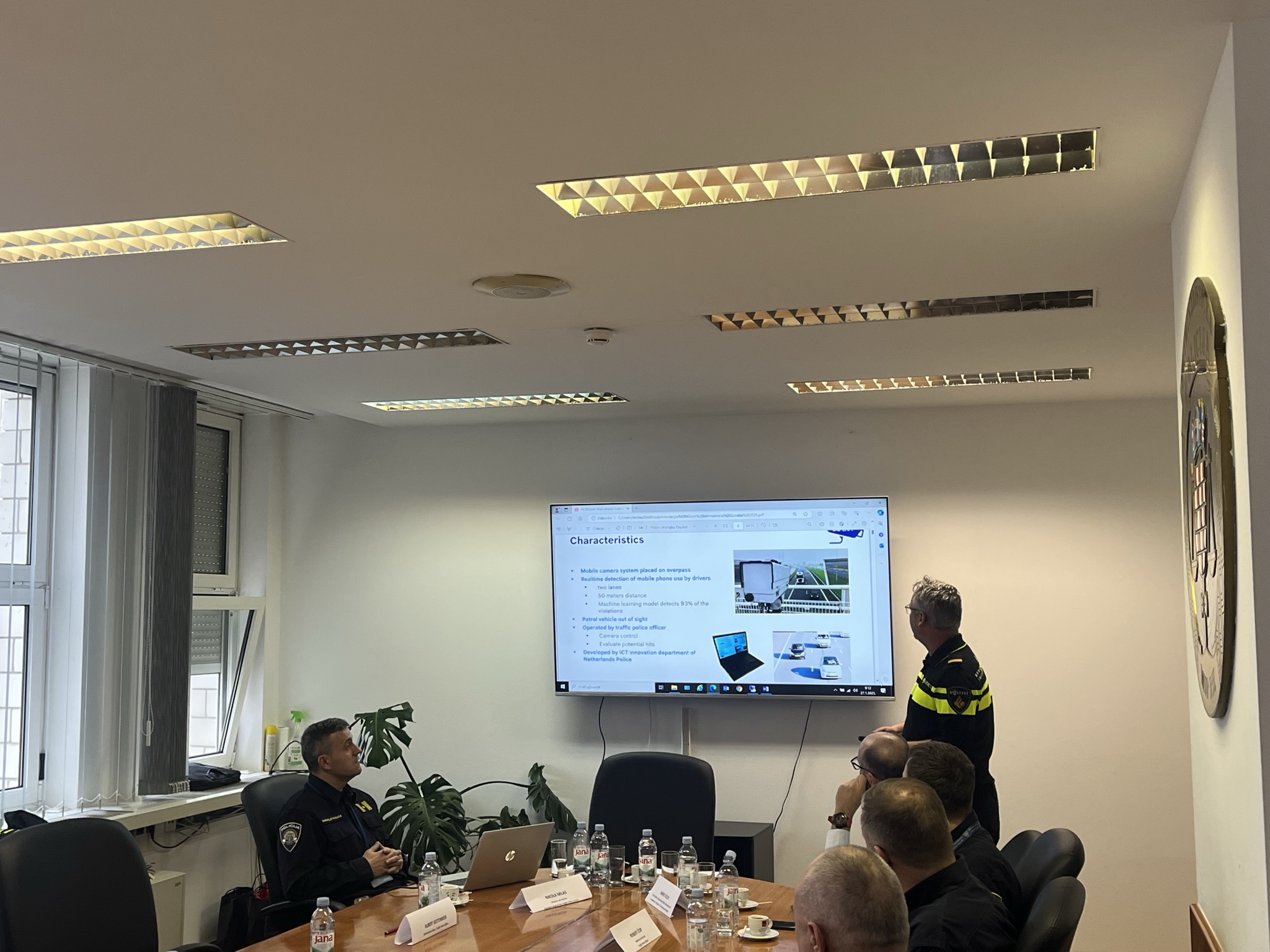
Albert Geitenbeek from the Netherlands Police presented the mono cam used by Dutch traffic police to detect drivers using their mobile phones with the help of AI. Croatia, which partners with the Netherlands on traffic enforcement as part of the EURSE project, focuses its enforcement actions on speeding, distracted driving, and seatbelt use—major causes of road deaths in the country.
The presentation sparked discussions on how distracted driving is an ever growing challenge, as the way mobile phones are used while driving is changing, and the increase in touch screen devices in the car, creates new challenges for road safety and enforcement.
In the afternoon, participants visited the Mobile Traffic Police Unit, where Commander Josip Medved presented their work and responsibilities for improving road safety. The police officers then demonstrated the modern equipment used during enforcement procedures and showcased unmarked police vehicles used in traffic enforcement, including a demonstration of the speed radar equipment.
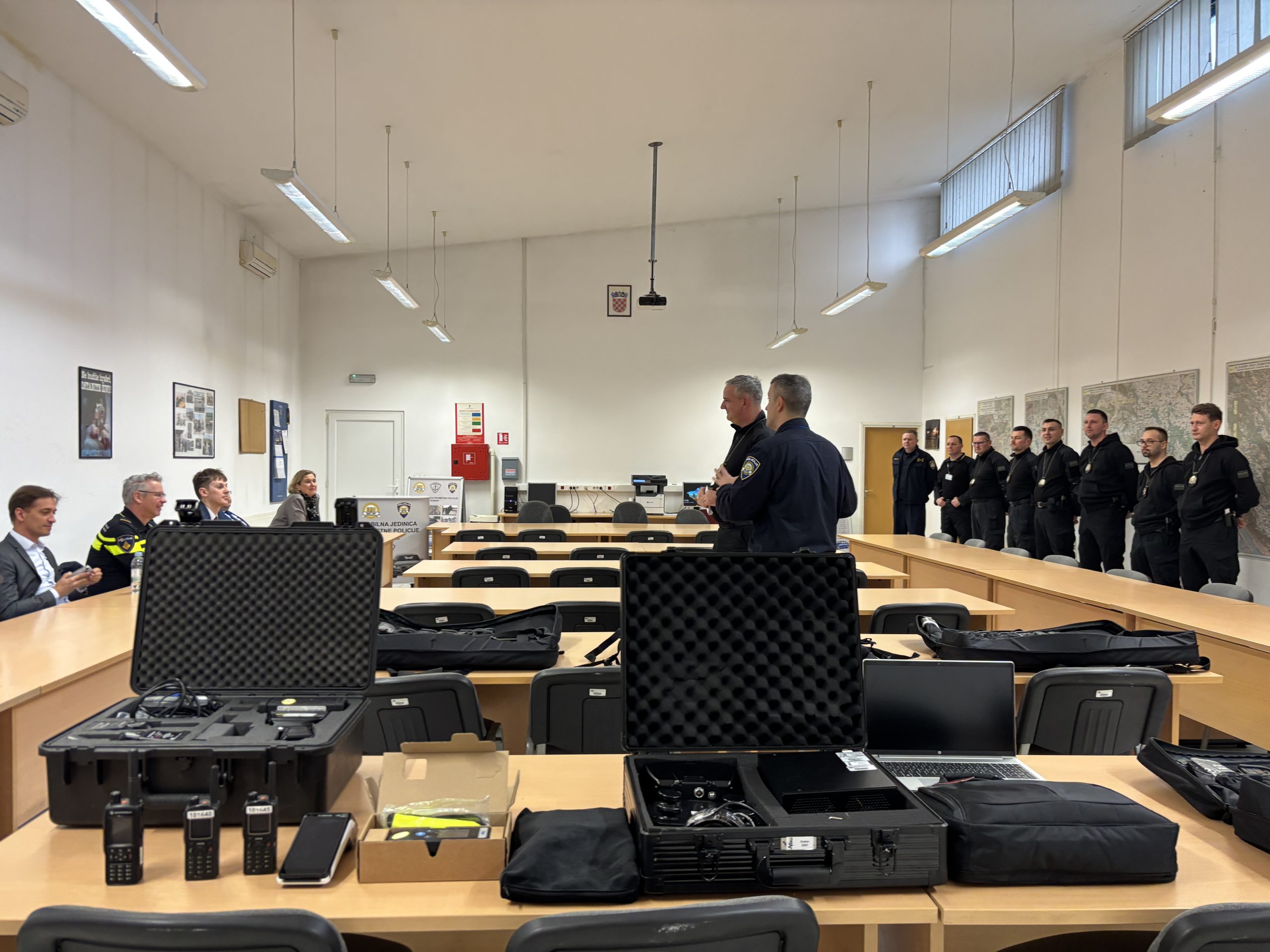
Croatian and Dutch police exchanged information on the vehicles and equipment used in traffic enforcement and the participants to the workshop went in unmarked police cars with mobile police traffic unit agents who demonstrated some of their daily work in maintaining traffic safety in Croatia.
The second day of the workshop was hosted by the Faculty of Transport and Traffic Sciences of Zagreb and focused on projects related to safe road infrastructure. After a welcome from the Dean Marko Šoštarić, faculty members from the University of Zagreb presented their work related to road safety projects, including research, EU-funded road safety projects, and road infrastructure assessments.
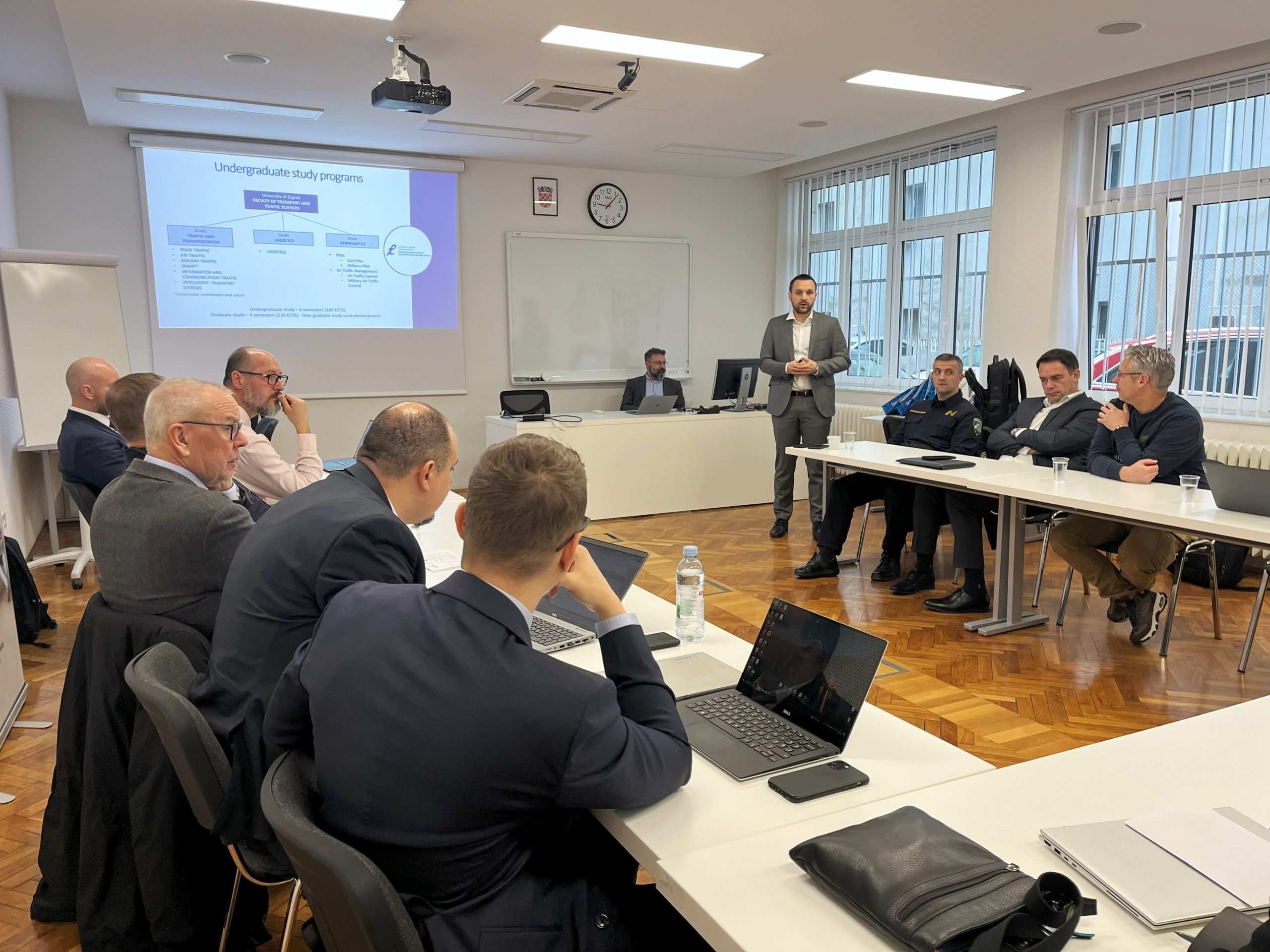
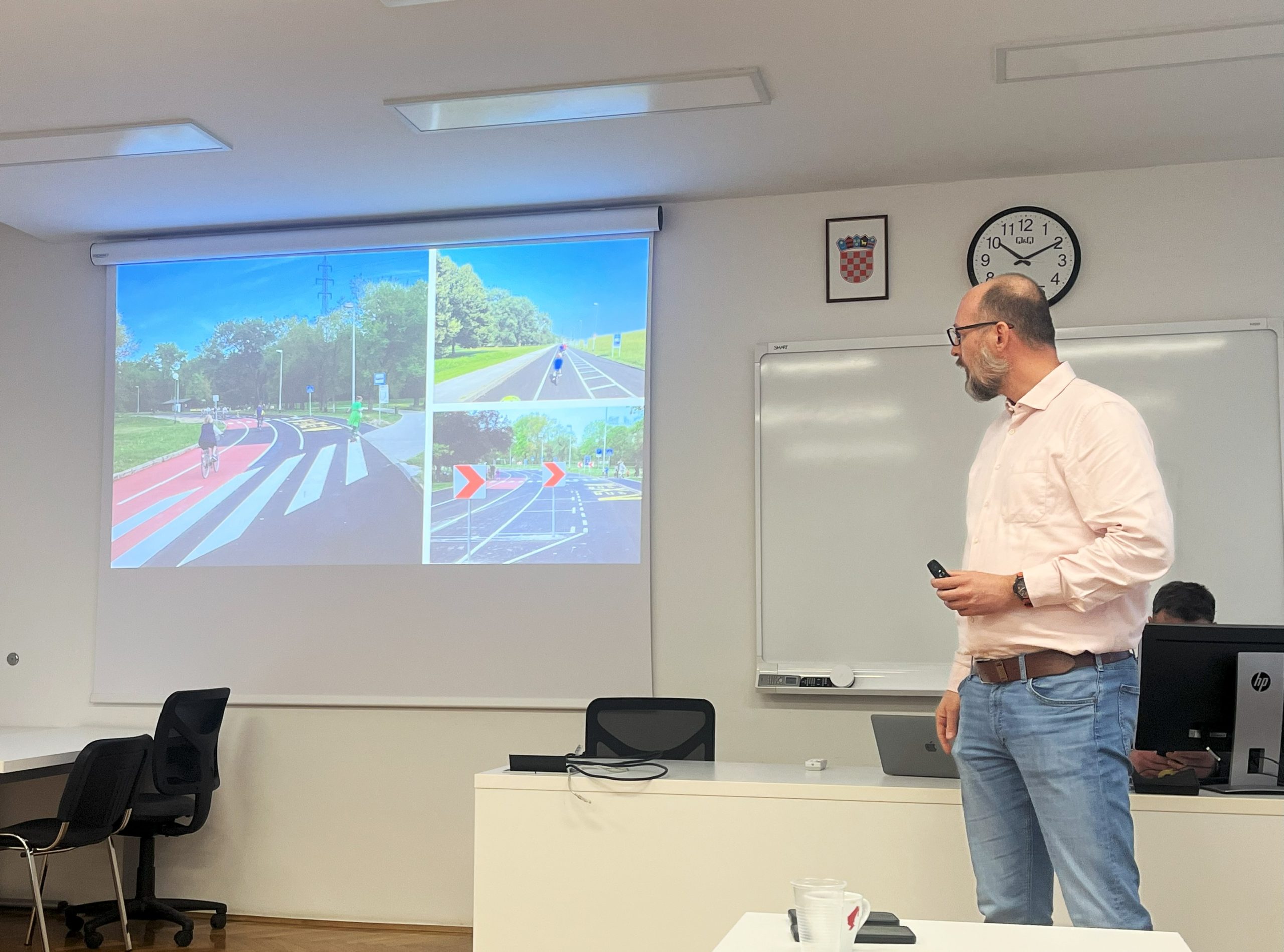
The Deputy Head of Municipal Governance, Transport, and Safety in Zagreb, Marko Velzek, presented city’s efforts to improve road infrastructure—making it safer for all road users, creating safe spaces for vulnerable road users, and developing initiatives such as school streets, safer pedestrian crossings, and improving the city’s overall livability.
He presented several examples of small and medium re-development projects implemented in the city and their positive impact on road safety. Later in the day, participants to the workshop visited the sites and saw the results in practice.
The Head of the Traffic Department at Croatian Roads, Slaviša Babić, shared the latest safe road infrastructure development projects in Croatia. This included Croatia’s updated methodology for assessing road infrastructure and addressing high-risk areas.
Special attention was given to motorcycle safety, another key issue on Croatian roads. The road authority is working to improve this through measures such as safety barriers and guardrails, road markings and sensors on barriers that notify emergency services in the event of a collision—especially in rural areas where communication options are limited.
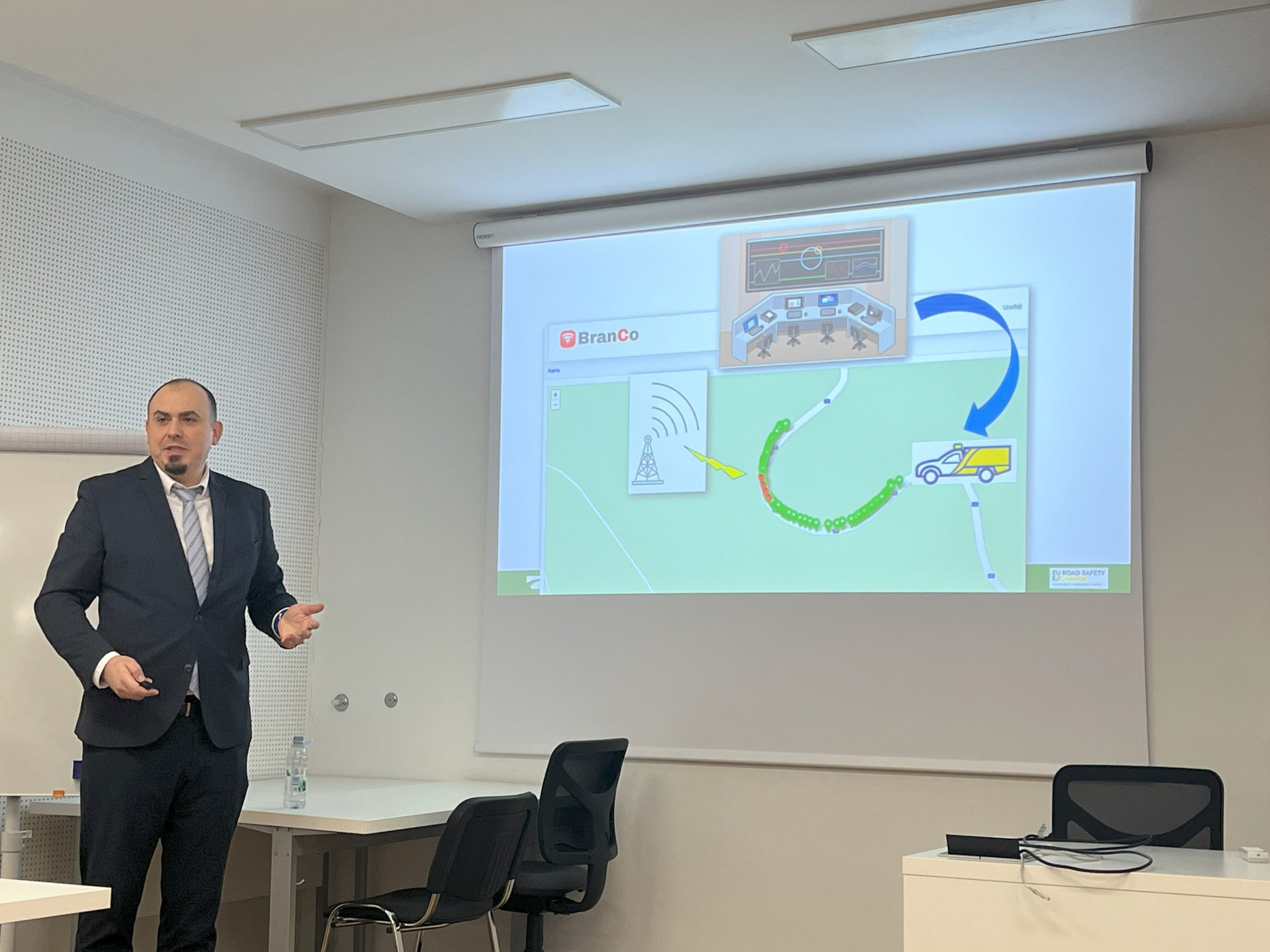
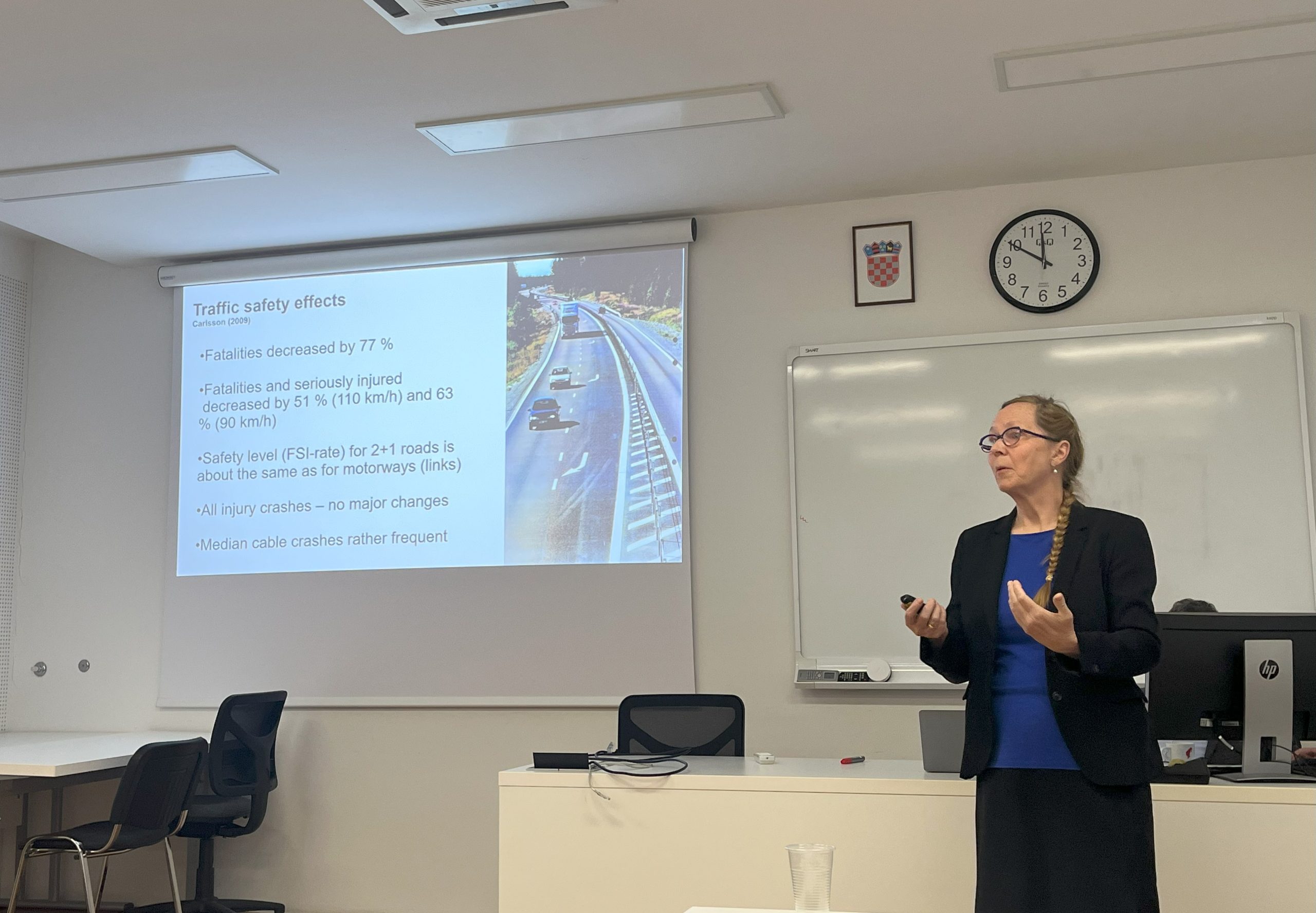
In the second part of the morning, Swedish experts, Lars Ekman, national expert of traffic safety, formerly at the Swedish Transport Administration and Astrid Linder, Professor and Research Director of Traffic Safety at the Swedish National Road and Transport Research Institute VTI and Professor at Chalmers University shared some of the Swedish good practice on safe infrastructure. Sweden is Croatia’s partner in the EURSE project on safe road infrastructure
They explained the Vision Zero approach and how it is implemented in road infrastructure projects. The Swedish 2+1 road model was presented, along with recent data and evaluations.
In the afternoon, the workshop concluded with site visits to newly redesigned intersections and projects to improve safety of pedestrians and cyclists, led by Marko Velzek, from the City of Zagreb.
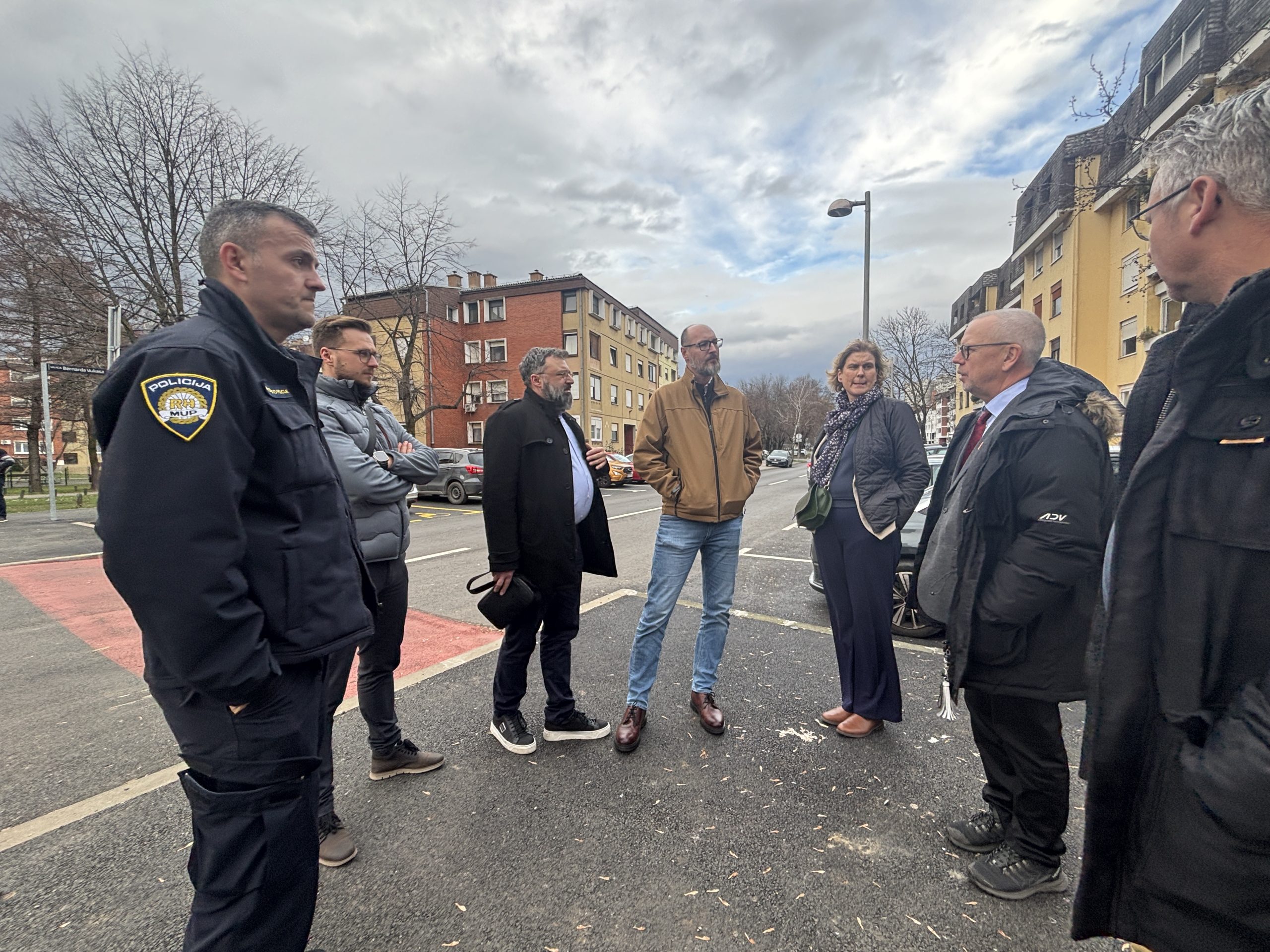
The EURSE workshop in Croatia provided an opportunity to learn more about the road safety work and developments in Croatia, as well as to further exchange good practices and strengthen partnerships between experts from Croatia, the Netherlands, and Sweden. The project aims to continue fostering collaboration and bringing forward new ideas and initiatives to improve road safety.
Six additional EURSE workshops are scheduled throughout 2025, with participating countries continuing to collaborate on key road safety topics identified in the project
